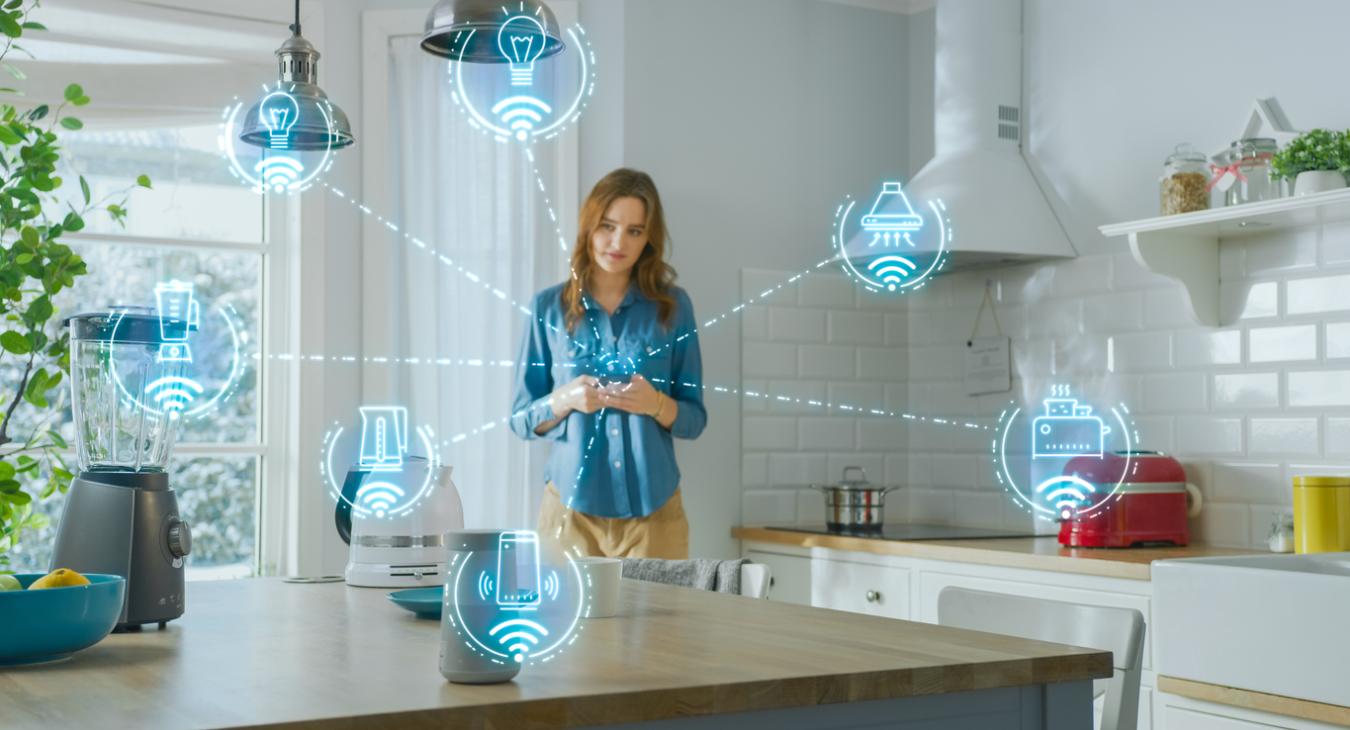Becoming Connected
Some smart devices for your home can help you save money. Others are designed for pure convenience – like phone apps you use remotely to close your garage door, unlock your door, or see who is on your front porch.
Using smart devices that can impact your energy bill won’t make you rich, but they can help lower your bills each month, which adds up over time. Here are some devices to consider:
- Smart thermostat
A smart thermostat studies your heating and cooling trends over time and can help reduce your energy bill by optimizing energy-saving tactics. You can also adjust the temperature of your home remotely and know how much energy you are using to heat or cool your home in real time. So while a programmable thermostat can help you save money, a smart version earns its name by all the extra things it can do above and beyond programming.
In either case, adjusting your thermostat up (air conditioning) or down (furnace) just one degree can make a difference in your utility bill, according to EEC Board Member Sam Adair. Adair says households can save up to 3 percent on the heating and cooling portion of their bill by making that simple adjustment. “So if your smart thermostat can shed a few degrees for a couple of hours or more, it should do nothing but save you money with the added convenience of peace of mind,” Adair said.
- Smart light bulbs/lighting
The first way to save money on lighting comes from good old-fashioned smarts and not a literal smart bulb, per se. Look around and see what kind of light bulbs you have in your house. By replacing your home’s five most frequently used light fixtures or bulbs with Energy Star versions, you can save $75 a year, according to energy.gov.
Upgrading your light bulbs can help you replace them less often as well. For example, a 60-watt incandescent bulb lasts an average of 1,000 hours, while a 12-watt LED bulb has an average life span of 25,000 hours.
Then there are actual smart light bulbs, which allow you to “schedule” lights and control them remotely. This could save you a little money if you or someone in your house is always leaving the lights on.
- Smart window coverings
Smart window coverings are pricey but they can help you save money on your energy bills over time. For example, they allow you to lower blinds on a hot and sunny day even if you’re not home, which may prevent your air conditioner from kicking on.
About 76 percent of sunlight that falls on standard double-pane windows enters your home to become heat, according to energy.gov. Conversely, about 30 percent of a home’s heating energy is lost through windows, and the efficient use of window coverings can reduce energy loss when it is cold outside.
- Smart water valves
According to the U.S. EPA, an average household’s water leaks can account for 10,000 gallons of water wasted every year. Collectively, that’s 1 trillion gallons of water each year in the U.S.!
Smart leak sensors monitor leaks under sinks, behind toilets and near other water sources in your home. And, like most smart home devices, the sensors can be linked to your smartphone to alert you of leaks. There are also smart water valves designed for your main water line for catastrophes like bursting pipes, although these are pricey and require professional installation.
- The smart plug
This device plugs into a regular outlet and allows you to control appliances remotely via a phone app. Most smart plugs track energy use so you can see how efficient (or inefficient) an appliance is. Some of them have a convenient away feature that allows you to program lights to make it look like someone is home.
For more information about energy-related smart home devices, contact Crow Wing Power's Member Service Department at 218-829-2827. For more information about electrical safety, visit SafeElectricity.org.

